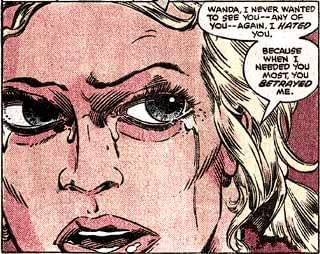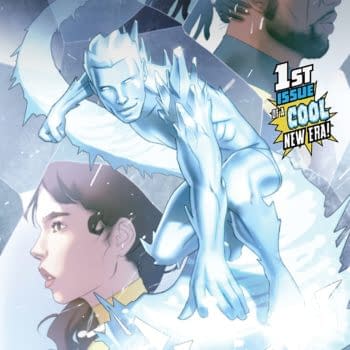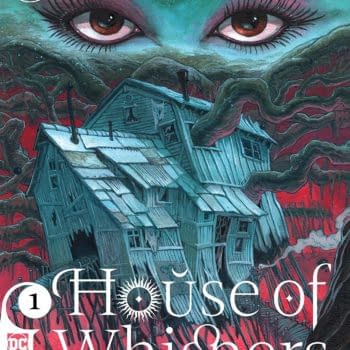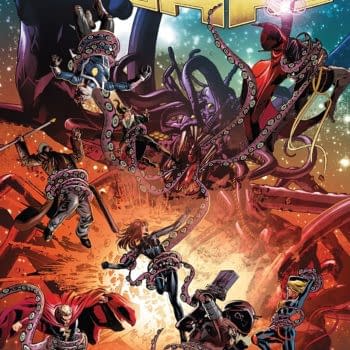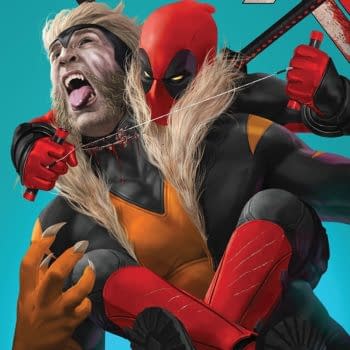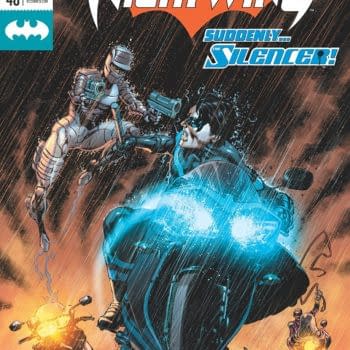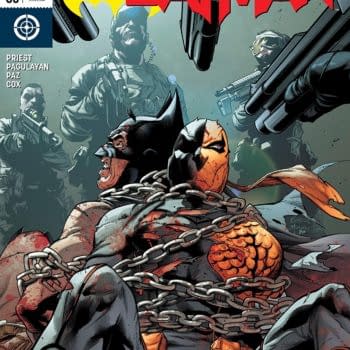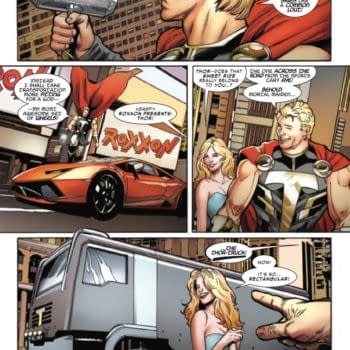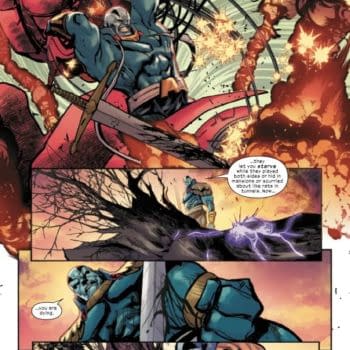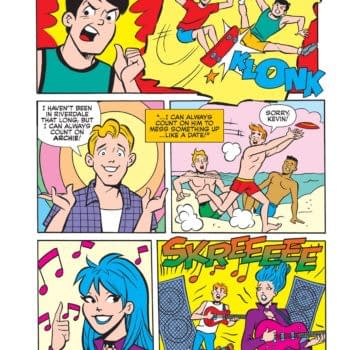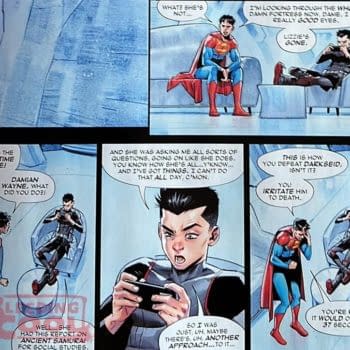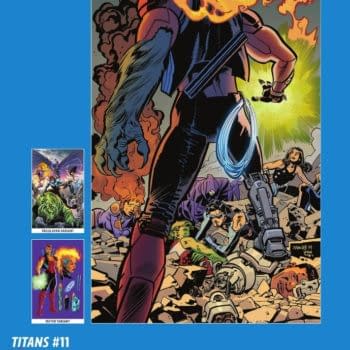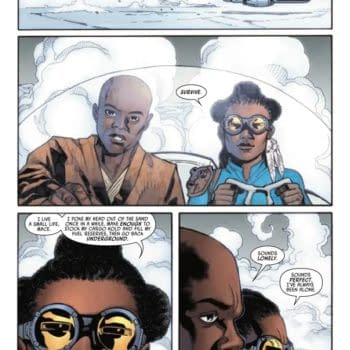Posted in: Comics, Marvel Comics | Tagged: ann nocenti, chris claremont, Chris Claremont's X-Men, documentary, jason aaron, Jim Shooter, len wein, louise simonson, Marvel Comics, Patrick Meaney, rob liefeld, x-men
Chris Claremont on How Heroes Stand up for Social Inequity, and the Re-Released X-Men Doc
For the upcoming expanded re-release of the Patrick Meaney-directed documentary, Chris Claremont's X-Men, I was given the opportunity to interview both Meaney and Chris Claremont himself to talk about the documentary, the X-Men, and the kind of comics the world needs.
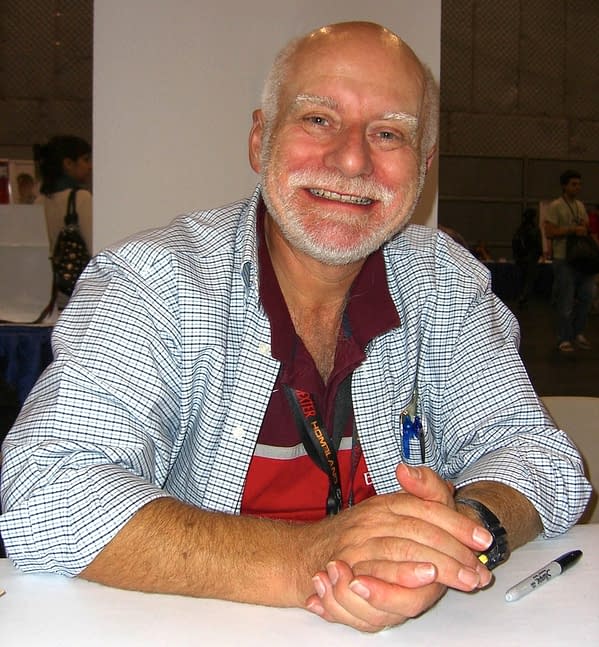
BC: I'll start with Mr. Claremont. This is one you probably get a lot, but I have to ask it. What was your favorite X-Men character to write and your favorite story that you wrote?
Chris Claremont: You're going to hate this answer. As far as characters, probably my favorite is the one that I'm writing when I'm writing it. With the pantheon, I don't play favorites; I've known them all far too long and care for them all far too much. As soon as I say one, I have to immediately qualify it with another. As far as stories, I would have to say #94 through #279 inclusive. The whole 17-year, 16-year run. To me, it's one story broken up into a lot of little parts. Within that pantheon, I don't play favorites anymore. Again, it's a continuing like stock. Picking one over the other — it's like, what's the favorite day of your life? There's this, and then there's that.
BC: I can definitely respect that.
Claremont: One doesn't want to make the other stories jealous *laughs*. Or the characters for that matter.
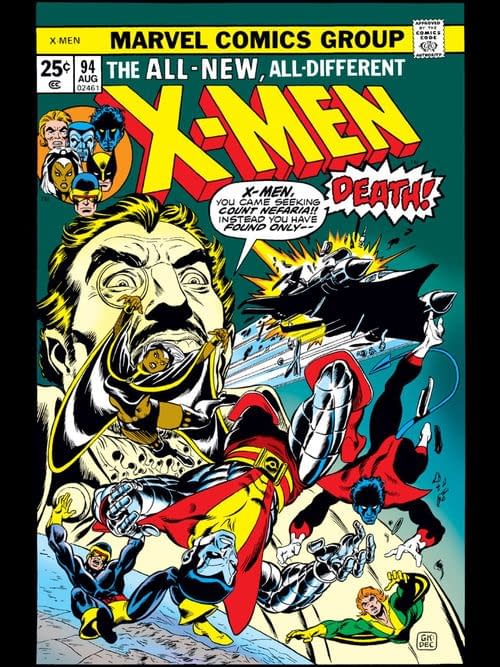
BC: Mr. Meaney, personally, why did you choose Claremont's X-Men for the doc? As fantastic as it is, I want to know why that was the thing that kind of grabbed you and you needed to document it.
Meaney: Well, for me, the first thing that got me into comics reading was the X-Men cartoon as a kid, and I knew the movie was coming out. I read the Essential X-Men #1, which they had these very cheap black-and-white reprints with a ton of issues in them. It started at Giant-Sized X-Men #1 and then starting with Chris's issues, and I was just blown away. I think it was so cool when you read the whole run as presented as one story, and it's like you're watching this thing that has become like a mythology with so many movies and shows and has become part of the culture. You see it all created and you get to see it built by Chris and Anne [Nocenti] and Louis [Simonson] and the artists that he worked with. And I think the thing that people don't realize is that it's not like a lot of different people and there aren't a lot of different random stuff that created these characters. It's this small group of people, and I think I wanted to do a movie to explore that and capture something for when these characters are going to be around in a 100 years. And I hope that in the future when people watch this movie and be like, "Oh wow, these are the people that created these characters and stories that are still inspiring us and we're still watching."
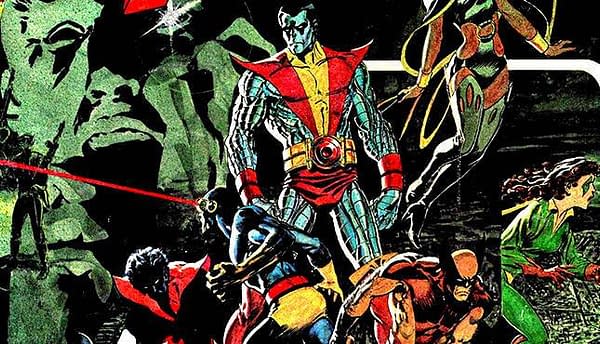
BC: I'm 22 years old and read X-Men: God Loves, Man Kills not that long ago. I was like "Wow, this still just feels like the way things are." I guess I wanted to ask if you could wave a magic wand and were currently running Marvel, what kind of comics do you think the world needs now?
Claremont: I think comics that can grab readers when they're young and hold them through their adolescence, and their 20s, and their 30s, and their 40s. The thing for me is what made Marvel Marvel for me is that I would look at Reed and Ben and Sue and Johnny and Peter and Thor and Steve Rogers and think, "These are not icons, these are people." They go to local places around the block in New York. They hang out. When I was a kid, I foolishly one weekend in high school and spent an afternoon walking around the lower east side trying to find Del Floria's Tailor Shop because it never occurred to me that the stock establishing shot in Manhattan you saw in Man from U.N.C.L.E. was just that — stock footage. I assumed it was a real place, and I wanted to find it because that was cool.
I think that what made Marvel come alive for me was that Thor would get into a yellow cab, and that the Thing would hang out at a local place, that my guys walk into a deli store that's right around the corner from my house. And then you take those elements and put them up, and I think that one of the things that I wish there were more of is that anyone can put on a super suit and punch bad guys. That's sort of the given of the reality. But what made Marvel so much fun was getting into the heads of the characters, of showing what it would be like to be as a person to present to the readership; what it's like to be a person of color with powers; a person of a non-politically correct religion trying to deal with life in an America that is choosing up sides and not knowing which one should come out on top; of men and women dealing with social and personal inequities.
How do you stand up for it? If you're a superhero, how do you deal with it? You're a superhero and you make a mistake — or worse, you're a superhero and a friend of yours is affected. Do you get involved? How do you get involved? Do you resolve it? How does it affect you? What do you do if your parents are laid off? If Aunt May can't support Peter, and Peter can't support Aunt May — these are all food for stories.
To just reduce the world to one skin-tight costume fights another skin-tight costume, great, but what will you take away from it? What will you remember a week from now or a year from now? I would rather take a shot at something like Stan [Lee] did, doing a story where Galactus tries to destroy the world and the FF beat him and the last third of the issue — what happens? Johnny Storm goes away to college. Wow, so normal! You need to have a link; the real life of a fictional character needs to have relevance and an impact on the real lives of the readers. That makes the fantasy that much more interesting and the characters that much more resonant. Sorry, that's my five-minute speech.
BC: *Laughs*, no problem; that was great, sir. If I can squeeze in one more question: I'm a huge fan of Carol Danvers, Ms. Marvel-now-Captain Marvel, and another one of my favorite stories that you were involved in was Avengers Annual #10.
Claremont: *Chuckles*
BC: *Laughs* Wherein you corrected a very bizarre story from Avengers #200 and brought her back and kind of rectified something. What compelled you to do that?
Claremont: I felt that if Carol were a friend of mine in reality, and if something absurd and cruel happened to her in reality as it did in the comics, I would like to think I would stand by her better. For me, it was just — this is not how love works. This is not how friends behave, and it originally seemed to me like manipulating a character to fulfill a plot objective while ignoring the reality of the character — of her as a person. And, in my purely emotional response, I wanted to give her a chance to state her side of the coin and also say to the Avengers — maybe we should all go back and reread the classic line: with great power comes great responsibility.
Responsibility isn't just beating the crap out of the villain. It isn't just saving the world. Responsibility means looking out for your friends, looking out for the innocent people who get caught up in all the superhero foolishness, listening to them, and doing what we can to help. And, in that instance, I felt that they did not do that. But stepping back to God Loves, Man Kills, there's a moment where Kitty Pryde's teacher, Stevie Hunter, calls her [Kitty] out for Kitty's attack on a fellow student because he was making anti-mutant comments. And Stevie's saying that you [Kitty] weren't grown up about it, and Kitty's response was a very blunt, "Yeah? What if he called you a n*****? How would you feel about that?"
And Stevie was black, and that, to me, is a word that should not be used, and should not be used in a comic book. But that was a graphic novel and the point that was being made had to be made in primal terms. These are people dealing with people's situations. Words hurt. Actions have consequences. Choices must be made. If one of the heroes is one of the advocates for saving the day, then the hero's responsibility is to listen and to help, and I felt that was an opportunity missed in the first story. And I wanted to do what I could to rectify it in the second, and, with the help of Michael Golden, I think we pulled it off. And that was a primal response to a primal moment of inspiration.

BC: Thank you very much for that — and one of my colleagues, Mary Anne, wanted to thank you for making so many bad-ass women characters.
Claremont: Well, one of my best friends, I remember waking up to her broadcasts in Sarajevo on a Saturday morning. She yells at a reporter for him to duck because they're shooting at us, and you hear the bullets going by. And there's nothing that will wake you up faster than a moment like that. And I know too many real people who do heroic things as part of their real-world job who are women. And I figured, if they can do that in reality, then they can sure as heck do it in a skin-tight costume.
BC: *Laughs*, thank you very much. I appreciate it.
Claremont: Thank you.
* * * * *
The extended version of Chris Claremont's X-Men will be released tomorrow on Vimeo. In the meantime, here is a clip with then-Marvel Editor-in-Chief and writer of the original Secret Wars, Jim Shooter.


